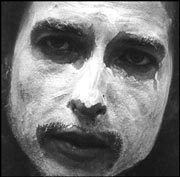THIS IS NOT an obituary.Dee Dee Ramone doesn’t need an obituary. He already wrote the definitive one.It’s a ghoulish little novel called Chelsea Horror Hotel, published last year, in which Dee Dee imagines himself staying in New York’s notorious residence. Throughout the book, he’s haunted and terrorized by the ghosts of his dead contemporaries—Johnny Thunders, Stiv Bators, Sid Vicious, Jerry Nolan, and all the other casualties.There’s an easy irony in the fact that Dee Dee, one of the most volatile of the original punks, outlived most of them. After Joey Ramone died of lymphoma, one got the hopeful feeling that the survivors had cleared the hurdle. Maybe we’d see softer passings among the blank generation. More natural ones, at least.That’s the hard irony. It still tastes bitter going down.Joey was the face of the Ramones—a guy who looked like Joey would’ve been the face of anything—but Dee Dee was its mouth and so its heart. A lot of people never realized that.The music sounded basic, even banal, on its surface. But the Ramones were essentially classicists, even if it took a while to recognize.The songs were short, like heart punches. The lyrics, written almost exclusively by Dee Dee, were about a single thing—heartbreak, boredom, sniffing glue, being terrified of the basement.Their aesthetic was a kind of precision bombing. Each two-minute song cut a hole in your skin whereby a single emotion, a single frustration or ecstasy, found a direct path to the air and finally got released.It was equal parts tradition and riot. The Ramones were Chuck Berry trying to get some, and being frustrated by the seat belt. They were Jerry Lee Lewis kicking the piano stool into the audience.But they were also Jean Genet and William Burroughs, chronicling the scabrous elements of our shared lives. That was Dee Dee’s contribution.The music was arrythmically fast, but there was a context for that. Dee Dee’s words, by contrast, suggested that simply feeling fucked up gave you the right to talk about it.They looked even uglier than we felt. And they didn’t seem afraid of anything. That, by itself, was a revelation.Dee Dee was an addict, true. He didn’t romanticize it. No one who really heard “53rd and 3rd” or “Chinese Rocks” could find them idealistic.It sounds trite: The drug does you. But—as ought to be clear by now, though some insist on missing the message—you eventually get yourself sucked up the tip and into the dropper. Every bloody flower pulled back through the syringe is a fraction of you diluted and taken away for good.You know, I’m not even curious about the unspecified “drug paraphernalia” in the Associated Press stories? I don’t care. It’s too redundant.When some enterprising editor publishes a collection of punk obits—and that’ll be a hefty volume—the dope chapter is going to make numbingly repetitive reading.It sounds useless: How do you get revenge on a habit? How do you hate a chemical compound for destroying the people you care about?It sounds stupid. But I do. I hate it.EVEN AFTER DEE DEE left the Ramones in 1989, he continued to write songs for them. The connection was that strong. He also became a painter—a good one. His simple, direct imagery bears comparison with Keith Haring’s line drawings.One of Dee Dee’s pieces, Forced, depicts a skinny straitjacketed figure with the mouth X’d over. Words cascade to the side of its body: “I did, I did, I, I, I tried, to warn everybody.”Dee Dee’s last book, Legend of a Rock Star, is scheduled for publication this month. Like all his work, it’s tough and snide and durable. But distinctively, Legend contains an expressive account of Joey’s illness and death, an elegiac passage unlike anything else in Dee Dee’s writing.In a way, it makes sense. He wrote so often about death that he seemed, like a lot of his friends, to be rehearsing for it. But there’s a difference between playing No Future and recognizing that the line between your life and the final dark is paper-thin.Dee Dee understood that nearness. He tried for 25 years to describe it. That didn’t seem to make him a happier person or a more stable one. And understanding it alone couldn’t save his life.But I know people whose lives were saved by the Ramones, and by Dee Dee’s articulate burn. Maybe yours was, too.It doesn’t even matter if you’re young and have no idea who he was. It doesn’t even matter if you didn’t know him. Dee Dee knew you.Hey ho.info@seattleweekly.com
THIS IS NOT an obituary.Dee Dee Ramone doesn’t need an obituary. He








